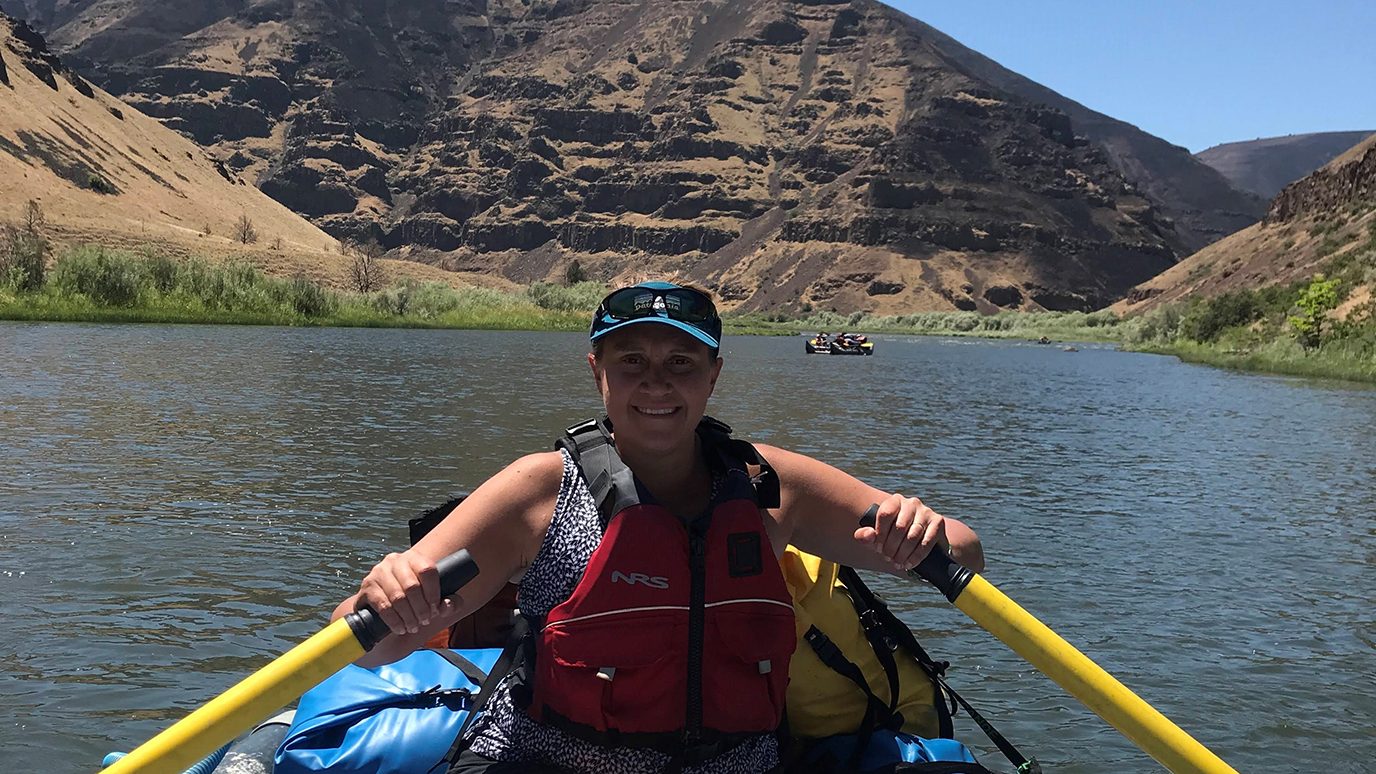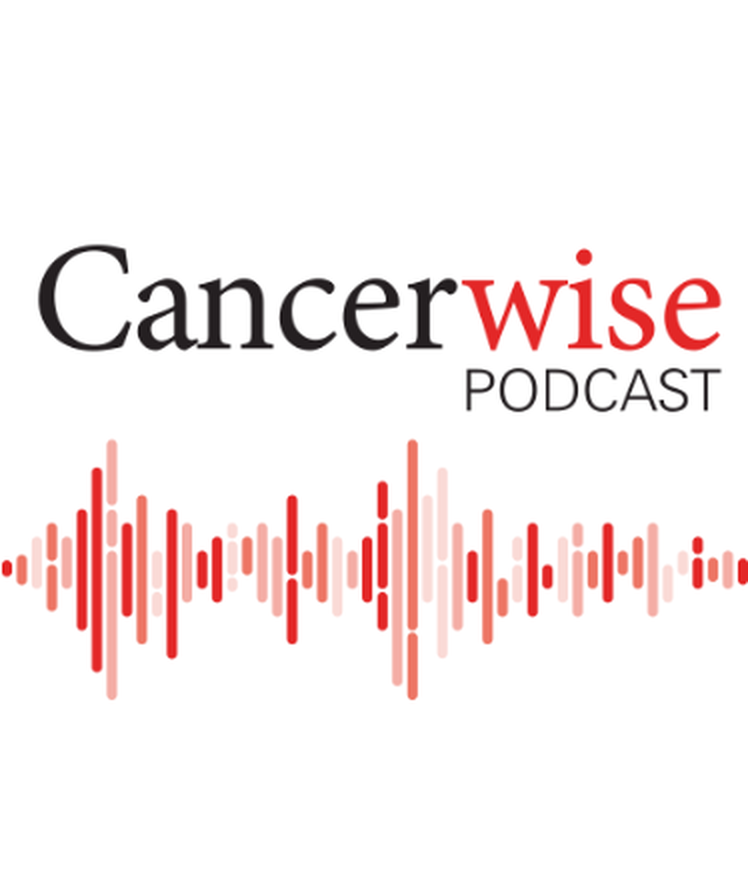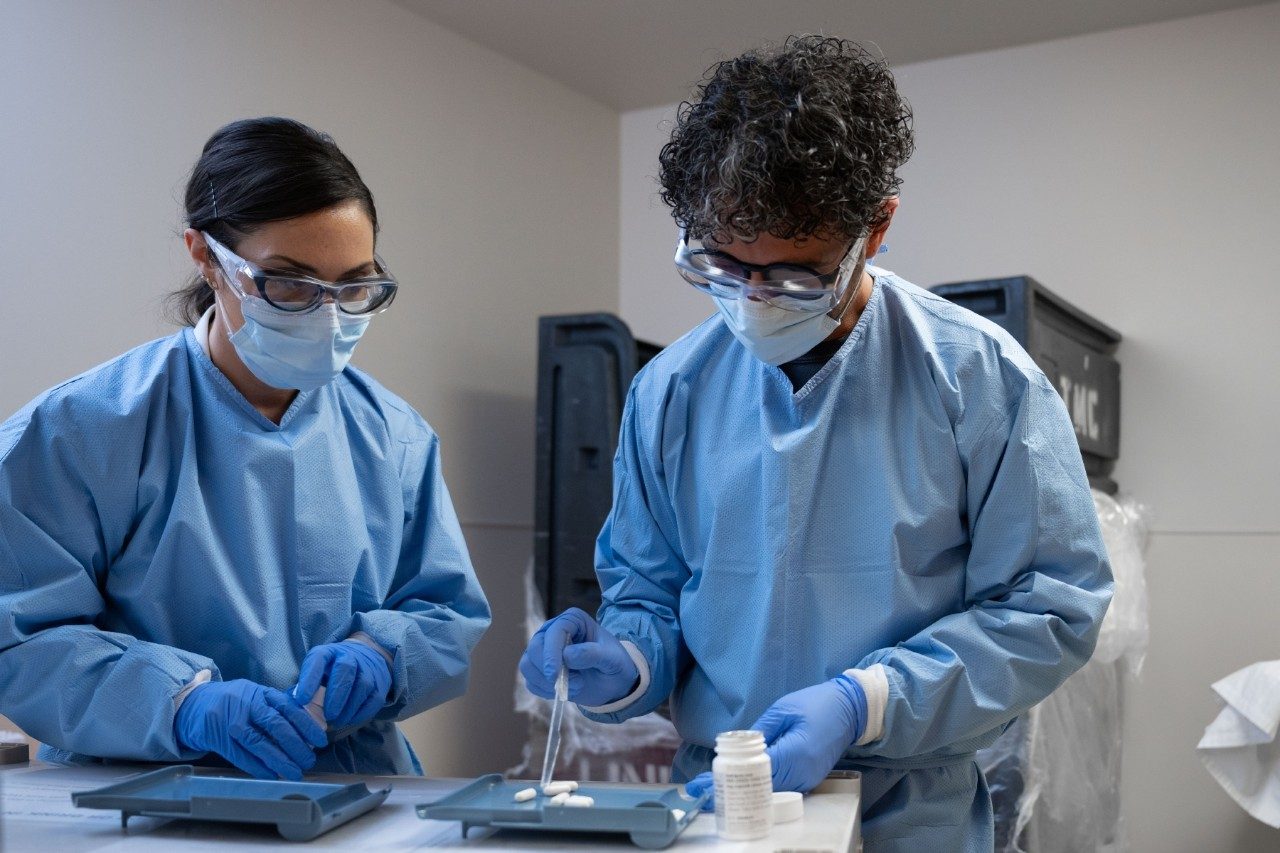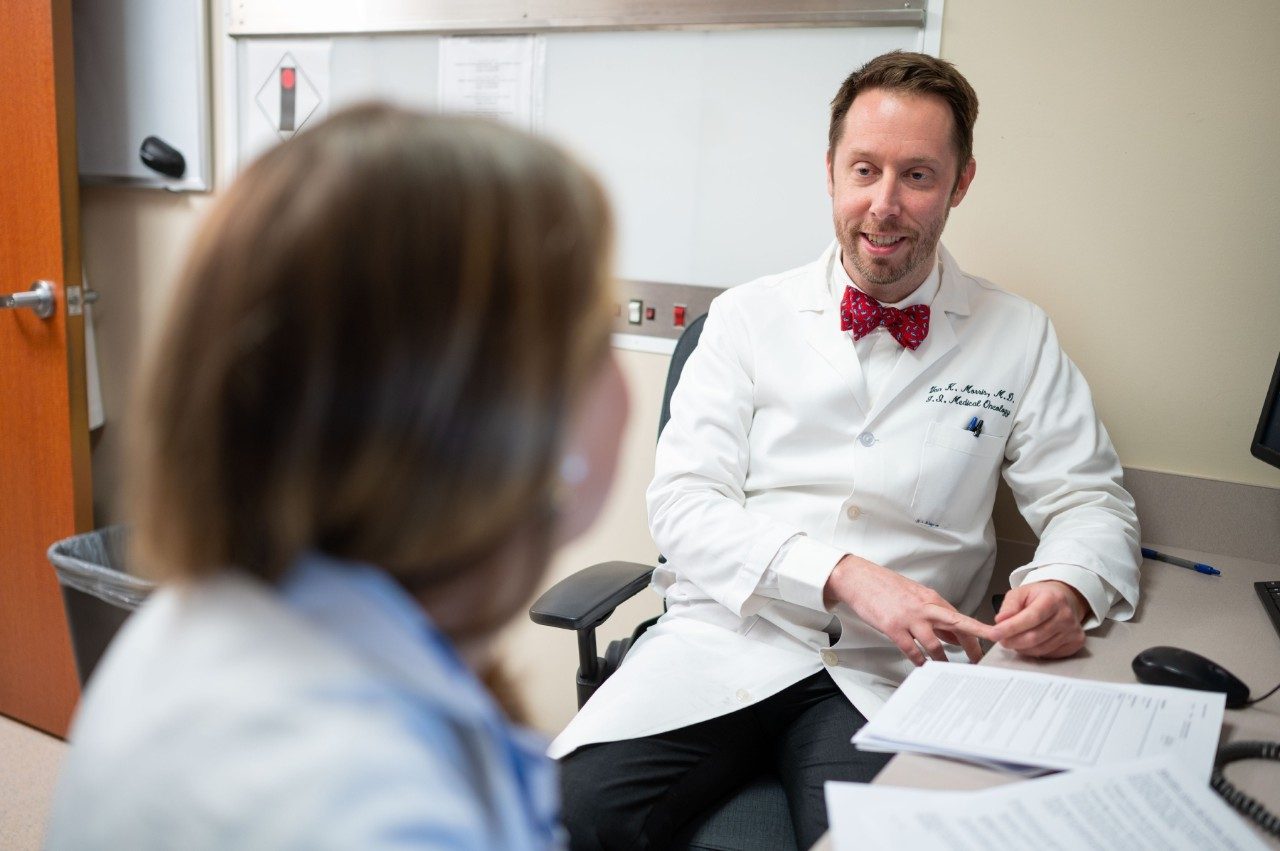Clinical trials are essential for delivering new and better cancer treatments to patients. As a worldwide leader in cancer clinical trials, MD Anderson is driving the field of cancer medicine forward while also prioritizing the safety of our patients. Participating in a clinical trial can provide patients access to innovative therapies not otherwise available and provide physicians valuable information to help future patients. Funda Meric-Bernstam, M.D., chair of Investigational Cancer Therapeutics, describes the importance of clinical trials and what patients can expect. Request an appointment at MD Anderson by calling 1-877-632-6789 or online: https://my.mdanderson.org/requestappointment
Clinical Trials at MD Anderson
As part of our mission to eliminate cancer, MD Anderson researchers conduct hundreds of clinical trials to test new treatments for both common and rare cancers. Look through our database to find studies for which you may be eligible.
Search Clinical Trials
Search by cancer type, treatment or drug, physician or NCT #
What are clinical trials?
Clinical trials are research studies in which patients may volunteer to take part. MD Anderson uses clinical trials to find better ways to prevent, diagnose and treat cancer. Doctors use treatment trials to learn more about how to fight cancer. This guide is for patients who may join a treatment trial.
Clinical trials are part of a long, careful process, which may take many years. First, doctors study a new treatment in the lab. Then they often study the treatment in animals. If a new treatment shows promise, doctors then test the treatment in people. Doctors do this in three to four steps, or phases. Your doctor may offer you a clinical trial as a treatment option.
Is a trial right for you? MD Anderson's clinical trials booklet contains a decision guide along with information on the clinical trials process.
How am I protected?
MD Anderson’s most important job is to protect patients. First, MD Anderson protects patients in clinical trials by following well-planned protocols.
A protocol:
- Explains the treatment plan
- Lists the medical tests patients will receive
- Gives the number of how many patients will take part in the clinical trial
- Lists eligibility criteria, which are guidelines to decide who may join the clinical trial
- Explains safety information
Second, MD Anderson protects patients by using a careful informed consent process.
Third, our Institutional Review Boards (IRBs) protect patients by reviewing protocols and monitoring trials. The IRBs are committees of doctors, nurses, chaplains, social workers, lawyers and patients. They make sure that trials follow federal laws and that patients are protected.
The U.S. Food and Drug Administration (FDA) audits the IRBs’ files. Also, FDA officials may visit MD Anderson at any time and review anything they choose related to clinical trials.
Did You Know?
Phases of a Trial
Each clinical trial goes through several phases, each with a different purpose.
Joining a Trial
Learn more about eligibility requirements to participate in a clinical trial.
Clinical Trial FAQs
Questions to ask your physician as you decide whether joining a clinical trial is right for you.
In the News

Mucosal melanoma survivor: 4 reasons I joined a clinical trial at MD Anderson

Chronic myeloid leukemia survivor: Why I joined a clinical trial at MD Anderson

Menin inhibitor clinical trial puts pediatric leukemia patient in remission

Lung cancer survivor grateful for immunotherapy clinical trial

Breast cancer survivor: Why I joined a clinical trial at MD Anderson

Meeting with a research nurse during a clinical trial: What to know
Video Gallery
From our Faculty Experts
Meeting with a research nurse during a clinical trial: What to know
Enrolling in a clinical trial is one way to access cancer treatment that may not yet be broadly available while helping future cancer patients. But participating in a clinical trial – a research study that evaluates a new drug or treatment for safety and effectiveness – may also be overwhelming if you don’t know what to expect.
Fortunately, research nurses are there to assist you through every step of the clinical trial process, helping you prepare and connecting you with resources.
“Clinical trials are an essential part of the process we use to develop breakthroughs in cancer treatment, helping patients live longer, healthier lives. The research that comes out of them can transform cancer care,” says Giulio Draetta, M.D., Ph.D., senior vice president and Chief Scientific Officer. “But the process can be daunting to patients, who have already been through so much. That’s where research nurses come in.”
What can a patient expect when meeting with a research nurse?
Before your first clinical trial appointment, the research nurse will review your medical records to confirm that you meet the clinical trial requirements. To help ensure the best outcomes, clinical trials often have a large number of requirements, such as having a specific cancer type or belonging to a certain demographic.
Once the research nurse has confirmed you meet all of the requirements, you’ll meet with the research nurse either virtually or in person for clinical trial education.
“With advances in technology, we’re seeing more and more patients virtually now. Fewer in-person appointments can help de-escalate stress. It’s all about making things easier for the patient,” says Doyle Bosque, Nursing Research Programs director.
During this appointment, the nurse will explain the trial process to you in great detail, including when and how often you will receive treatment and what that treatment will include. They’ll also explain what possible side effects you may experience and how to manage those side effects. The nurse may also explain what resources are available within MD Anderson.
“This is an opportunity for patients and their families to ask as many questions as possible,” Doyle says.
How often will a patient see a research nurse?
You will continue to see a research nurse for the duration of the clinical trial – which could be months, or even years. The nurse will explain any changes in your care. They'll also continue to meet with you to check your vital signs, take blood samples, or ask you questions about your health and any side effects you may be experiencing as a part of the clinical trial.
“It’s a continuing relationship. The research nurse often becomes part of the family,” Bosque says. “It’s so exciting to see patients who are doing well today because of their success on a clinical trial. I still get calls from family members to this day who want to know how I’m doing – you never lose that bond. To me, being a research nurse is getting to that intimate level with a patient where you support them at their most vulnerable times and help them through that.”
Are research nurses able to treat patients?
Becoming a research nurse requires the same education and licensure as clinical nurses, including a bachelor’s degree in nursing and professional nursing license (RN). Research nurses receive specialized training to conduct research, but they’re still able to perform many of the clinical tasks as other nurses, including giving medications and injections, performing patient assessments, and more. The type of care a research nurse administers may differ from hospital to hospital and even clinic to clinic.
How do research nurses impact cancer research and patients at MD Anderson?
Research nurses are a critical part of the clinical trial process. From administering patient care to serving as patient advocates, they have the opportunity to make an impact on individual patients and the entire field of cancer care.
“Research nurses usher patients through treatment experiences they might not have access to otherwise and uphold clinical trial criteria and standards,” Draetta says. “Their work is a key component in helping us develop breakthroughs in cancer treatment.”
Request an appointment at MD Anderson online or call 1-877-632-6789.
Gastrointestinal medical oncologist and researcher driven to help patients live longer
Van Morris, M.D., is driven to offer more to patients.
“I am reminded every day about the opportunities for improving treatments for our patients with cancers in the GI tract,” says Morris, a gastrointestinal medical oncologist and clinician scientist. “This fuels my passion to use research to do more to help our patients and their families, and to help patients everywhere live longer.”
Throughout his career, Morris has led clinical trials that have led to insights into the treatment and defining factors of colorectal cancer. In 2022, he received a grant from the Cancer Prevention and Research Institute of Texas (CPRIT) to examine the cancer cells that remain after treatment and contain a protein called TGF-beta. This protein plays a crucial role in controlling the cell’s responses during growth and other critical functions.
Fellowship fuels discoveries
That same year he was named to the class of Sabin Family Fellows. Made possible by a generous endowment from philanthropist Andrew Sabin, the fellowship provides up-and-coming faculty members with $100,000 to pursue potentially practice-changing science early in their careers when federal and private funding opportunities are often limited.
The Sabin fellowship has empowered Morris to study MSS BRAF V600E, a mutation in the BRAF gene that can be found in microsatellite sable (MSSS0) colorectal cancers. Patients with this type of mutation have relatively stable DNA. For the most part, the error-checking process in their DNA works correctly. But they have a mutation found in the BRAF protein that causes it to constantly activate and reproduce, leading to a tumor. This relatively rare type of cancer accounts for 5% of colorectal cancer cases and is difficult to treat.
Tackling even the rarest of deadly cancers
In 2015, Morris’ mentor, Scott Kopetz, M.D., Ph.D., conducted a study that established the standard of care for people with MSS BRAFV600E: two drugs, encorafenib and cetuximab. Encorafenib targets and stops the mutated BRAF protein from growing, and certuximab, blocks the Epidermal Growth Factor Receptor (EGFR), further preventing growth. It helped patients live longer, but the median survival was still only four months. Morris wanted to continue this legacy of work on the Gastrointestinal Medical Oncology team.
He continued to learn more about the mutation and saw that it was characterized by a high immune system response. He wondered if immunotherapy could be used to treat this cancer successfully.
Morris investigated taking this regimen and adding a type of immunotherapy, anti-PD1 therapy. Cancer cells can trick the immune system into not working, but anti-PD1 therapy prevents this, allowing the immune system to attack the cancer. Some cancer cells can evade the immune system, thanks to a protein called PD-L1. It sends off signals to T cells. While T cells are designed to wipe out infected or cancerous cells, those signals trick them into leaving the cancer cells alone so they can spread. For that to occur, PD-L1 has to first bind with another protein, PD1. So anti-PD1 therapy stops that interaction from taking place and makes it impossible for PD-L1 to send the off signals. This allows the T cell to recognize and attack the cancer cells.
The median survival extended to almost 7-and-a-half months. Two patients classified as “exceptional responders” stayed on the treatment for two years.
The clinical trial was conducted during the onset of the COVID-19 pandemic when it was difficult to enroll patients. But the results were promising.
“These were amazing results we were not used to seeing in enough of our patients with BRAF-mutated colorectal cancer,” Morris says.
Based on these findings, Morris is now leading a nationwide clinical trial as lead investigator testing this combination across sites across the United States.
Learning what allows some people to have exceptional responses
Morris began to collect more information about patients with the BRAF gene mutation. He worked with researcher Anirban Maitra, M.B.B.S., to conduct liquid biopsies and collect blood samples from patients in the study. Researchers then examined RNA signatures from these liquid biopsies. They found that the exceptional responders’ RNA had differences from that of other patients. While the trial had been small, it gave credibility to the idea that conducting a larger trial and examining even more patients’ RNA could shed greater light into what makes treatment successful for a patient with a rare mutation.
Now, Morris is the principal investigator of a randomized Phase II clinical trial evaluating this combination of treatments and analyzing liquid biopsies.
“The ability to conduct high-impact clinical research with first-in-kind clinical trials is unparalleled at MD Anderson,” he says. “This offers our patients the highest quality of patient care beyond standard practices.”
Learn about research careers at MD Anderson.
Help #EndCancer
Give Now
Donate Blood
Our patients depend on blood and platelet donations.
Shop MD Anderson
Show your support for our mission through branded merchandise.






